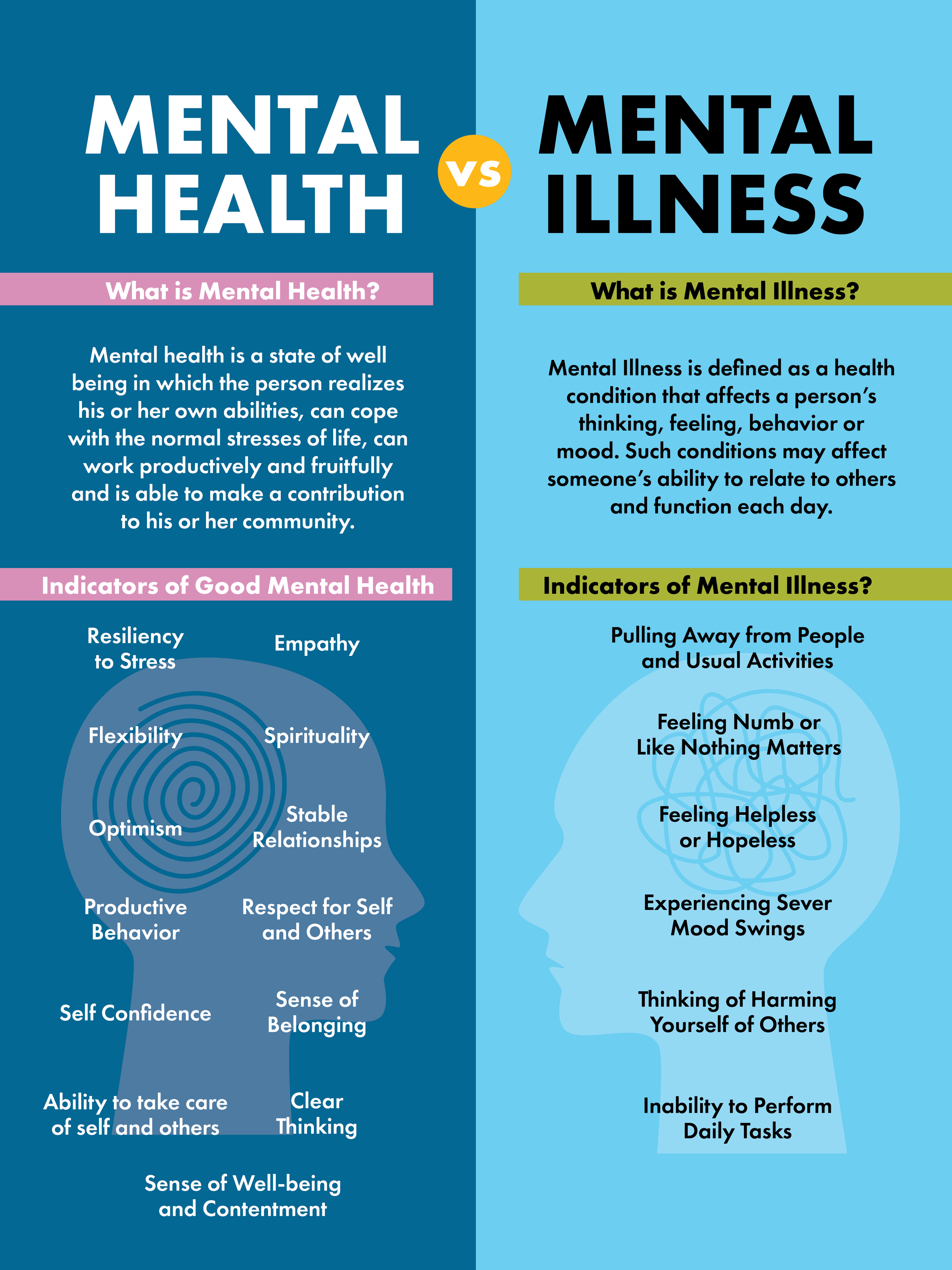Comprehensive Inpatient Mental Health Solutions for Effective Therapy
Inpatient mental wellness services represent a critical component of the health care system, providing a structured and extensive atmosphere for people experiencing severe mental distress. These solutions use a multidisciplinary approach, integrating numerous evidence-based treatments to deal with the complicated demands of patients. Nevertheless, the efficiency of such thorough care extends beyond instant stablizing; it also encompasses the shift to outpatient assistance, an essential phase frequently ignored. Discovering the subtleties of this continuum discloses substantial effects for both specific recuperation and wider psychological wellness outcomes. What elements really affect this change, and just how can we improve its performance?
Recognizing Inpatient Mental Health And Wellness Solutions
Inpatient mental wellness services provide essential assistance for individuals experiencing extreme mental distress that can not be managed properly in an outpatient setting. These solutions are created to provide an extensive level of treatment in a structured environment, commonly within a healthcare facility or specialized facility. People admitted to inpatient programs typically present acute signs and symptoms, such as suicidal ideation, extreme depression, or psychosis, demanding day-and-night surveillance and intervention.
The admission procedure typically involves a detailed assessment by psychological health experts, that assess the person's mental state, background, and immediate requirements. As soon as admitted, clients involve in a variety of restorative modalities customized to their details requirements, consisting of drug administration, specific treatment, and group sessions. This alternative strategy aims to support the individual's condition, promote security, and foster coping abilities.
Inpatient psychological health services not just address prompt wellness concerns yet likewise act as a bridge to recurring care. By offering a controlled atmosphere, these solutions promote the growth of treatment plans that can be continued in outpatient setups, hence ensuring a continuum of care and improving long-term results for people with intricate mental health needs.
Key Components of Effective Therapy
Effective therapy in inpatient psychological wellness solutions consists of a number of crucial parts that promote recovery and stabilization. A comprehensive evaluation is essential to recognize the person's certain requirements and difficulties. This assessment educates the growth of a customized treatment plan, which functions as a roadmap for treatment.
One more crucial component is the multidisciplinary group technique. Partnership among psychoanalysts, psychologists, nurses, and social employees makes sure that various perspectives add to the client's care, boosting the efficiency of treatment. Evidence-based healing techniques, such as cognitive-behavioral treatment (CBT) and dialectical habits therapy (DBT), are additionally essential, providing organized techniques that resolve maladaptive thought patterns and behavior problems.

Last but not least, an emphasis on aftercare planning is crucial to make sure a seamless change to outpatient solutions, minimizing the threat of relapse and advertising long-lasting health. These collective parts produce an effective therapy framework within inpatient psychological health solutions.
Benefits of Comprehensive Treatment

Detailed treatment in inpatient psychological health services uses countless benefits that considerably improve person outcomes. One of the main advantages is the alternative check it out strategy to therapy, addressing not only the mental signs however additionally the physical, social, and psychological demands of clients. This comprehensive assessment permits tailored interventions that promote total wellness.
One more advantage is the integration of multidisciplinary groups, which promotes cooperation amongst medical care specialists. This joint setting makes certain that people obtain worked with treatment, lowering the danger of fragmented treatment and enhancing communication among caretakers. Extensive care promotes connection advice of services, allowing for smooth shifts from inpatient to outpatient settings, which is crucial for lasting healing.

Finally, the structured environment of comprehensive inpatient treatment gives a secure area for individuals to take part in therapeutic tasks, aiding them establish coping techniques and resilience. Jointly, these advantages contribute to more reliable therapy and enhanced quality of life for people experiencing psychological health and wellness crises.
Evidence-Based Healing Techniques
In the realm of psychological wellness treatment, evidence-based therapeutic approaches play a critical function in guaranteeing that patients obtain efficient and scientifically sustained interventions. These strategies integrate the very best readily available research with clinical expertise and individual values, cultivating a tailored therapy experience that deals with specific requirements.
Cognitive Behavior Modification (CBT) is among one of the most extensively recognized evidence-based techniques, concentrating on identifying and altering unfavorable idea patterns and behaviors. This structured technique has actually shown efficacy in treating problems such as ptsd, stress and anxiety, and clinical depression. In A Similar Way, Dialectical Behavior Modification (DBT) is particularly effective for individuals with borderline character condition, highlighting the advancement of psychological law and interpersonal performance abilities.
In addition, medicine management is commonly an essential element of evidence-based treatment, as psychotropic medicines can reduce signs and boost overall functioning. Joint care models, which involve multidisciplinary groups, even more improve the efficiency of inpatient solutions by making sure thorough analyses and continuous monitoring.
Eventually, the combination of evidence-based therapeutic techniques not just promotes positive medical results but also equips people, cultivating a sense of agency and resilience in their psychological wellness journeys.
Transitioning to Outpatient Assistance
The transition from inpatient psychological wellness services to outpatient assistance marks a crucial phase in a client's recovery trip. This period calls for mindful preparation and coordination to make certain continuity of care and to mitigate the risks of regression or situation. Effective discharge preparation must begin early in the inpatient stay, including a multidisciplinary group that includes psychoanalysts, psycho therapists, nurses, and social employees.
Key elements of a successful change consist of the development of a comprehensive aftercare strategy customized to the person's specific demands. This strategy should outline follow-up appointments, drug management, and restorative interventions, as well as recognize neighborhood resources and assistance teams that can help with ongoing recovery.
Furthermore, patient and family education and learning is essential throughout this stage. Recognizing the indicators of potential troubles and the significance of adhering to treatment can equip people and their support group.
Regular follow-up and review of the outpatient strategy visit our website are vital to deal with developing challenges. By fostering a collaborative connection in between inpatient and outpatient providers, the likelihood of continual healing increases, inevitably improving the individual's top quality of life and reducing the threat of readmission.

Final Thought
In recap, thorough inpatient psychological health and wellness solutions offer a necessary structure for resolving serious psychological distress with a multidisciplinary approach. Ultimately, such extensive treatment is vital for lasting mental health and wellness and health.
The admission procedure usually involves a detailed evaluation by psychological health and wellness experts, who assess the person's psychological state, background, and immediate demands.Effective therapy in inpatient mental health and wellness solutions comprises numerous crucial elements that foster healing and stabilization.Thorough treatment in inpatient psychological wellness solutions offers countless benefits that significantly enhance person outcomes.The shift from inpatient mental health services to outpatient support notes an essential phase in a client's recovery trip.In recap, comprehensive inpatient mental health and wellness solutions use an important structure for attending to extreme mental distress via a multidisciplinary approach.